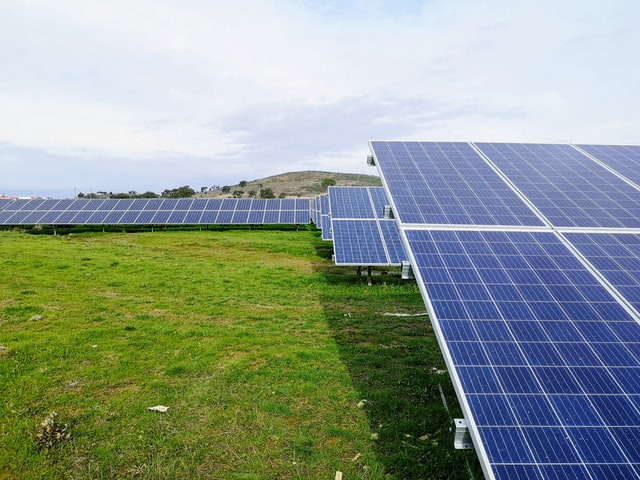In an era where sustainability and renewable energy are at the forefront of global conversations, harnessing solar power has emerged as one of the most promising and accessible solutions. Residential solar panels, in particular, have gained immense popularity as a viable way for homeowners to not only reduce their carbon footprint but also save on energy costs over the long term. In this comprehensive guide, we’ll delve into the world of residential solar panels, exploring their benefits, installation process, maintenance, and much more.
The Advantages of Residential Solar Panels
1. Renewable and Clean Energy
Solar power is an infinitely renewable energy source that harnesses the sun’s rays to generate electricity. Unlike fossil fuels that contribute to air pollution and climate change, solar panels produce clean energy with no greenhouse gas emissions. By installing solar panels on your residence, you actively contribute to reducing the demand for non-renewable energy sources.
2. Reduced Energy Bills
One of the most enticing benefits of residential solar panels is the potential for significant cost savings on energy bills. While the initial investment can be substantial, solar panels have a long lifespan and can generate electricity for decades. This means that over time, the savings on your electricity bills can offset the upfront costs.
3. Low Maintenance
Maintaining solar panels is relatively straightforward. They have no moving parts, which means there’s minimal wear and tear. Regular inspections, cleaning, and occasional professional maintenance can keep your solar panels operating efficiently. Many manufacturers also offer warranties that cover any unexpected maintenance requirements.
4. Increase in Property Value
Installing solar panels can boost the value of your home. Potential buyers are often attracted to properties with existing solar panels due to the reduced energy costs they offer. Studies have shown that homes equipped with solar panels tend to sell faster and at higher prices than homes without.
5. Energy Independence
Solar panels give homeowners a degree of energy independence. By generating your own electricity, you become less reliant on utility companies and the fluctuating prices of conventional energy sources. This independence can offer peace of mind in times of energy crises or price hikes.
Installing Residential Solar Panels
1. Assessment and Planning
Before diving into solar panel installation, it’s essential to assess the feasibility of your project. Factors such as the orientation and tilt of your roof, shading from trees or nearby structures, and local climate conditions can affect the efficiency of your solar panels. Consulting with a solar installer or professional can help you determine the optimal setup for your home.
2. Choosing the Right Solar Panels
Solar panels come in various types, such as monocrystalline, polycrystalline, and thin-film. Each type has its own efficiency, cost, and appearance. Researching and understanding these options will help you make an informed decision based on your budget and energy needs.
3. Incentives and Permits
Before installation, research available solar incentives, tax credits, and rebates in your area. These financial incentives can significantly reduce the overall cost of installing solar panels. Additionally, check with your local authorities about necessary permits and regulations for solar panel installation.
4. Installation Process
The installation process is typically handled by professionals. It involves securing the mounting system onto your roof, wiring the solar panels to your home’s electrical system, and installing an inverter to convert the generated DC electricity into AC electricity for household use.
5. Connection to the Grid
Most residential solar panel systems are connected to the grid. This allows you to sell excess electricity back to the grid when your panels generate more power than you consume. This process, known as net metering, can further reduce your energy bills.

Caring for Your Solar Panels
1. Regular Cleaning
Dirt, dust, and debris can accumulate on the surface of solar panels, reducing their efficiency. Regularly cleaning them with water and a soft brush can help maximize their energy output. However, be cautious when cleaning to avoid damaging the panels.
2. Monitoring Performance
Keep track of your solar panel system’s performance through monitoring tools provided by the manufacturer or installer. Monitoring helps you identify any drop in efficiency or potential issues that might require professional attention.
3. Professional Inspections
While solar panels have low maintenance needs, it’s advisable to schedule professional inspections every few years. Experts can assess the system’s overall health, including the condition of the panels, wiring, and inverters, ensuring everything is in optimal working condition. If you found this article interesting about green energy, it is very likely you will enjoy further reading at Merchant Circle.
In Conclusion
Residential solar panels have transformed from a futuristic concept to a practical and accessible means of harnessing renewable energy. Their numerous benefits, including reduced energy bills, lower carbon emissions, and increased property value, make them a worthy investment for homeowners with a long-term perspective. By understanding the installation process, making informed choices, and maintaining your solar panels, you can embark on a journey towards a more sustainable and cost-effective energy future. So, why not embrace the power of the sun and make a positive impact on both your finances and the environment?
